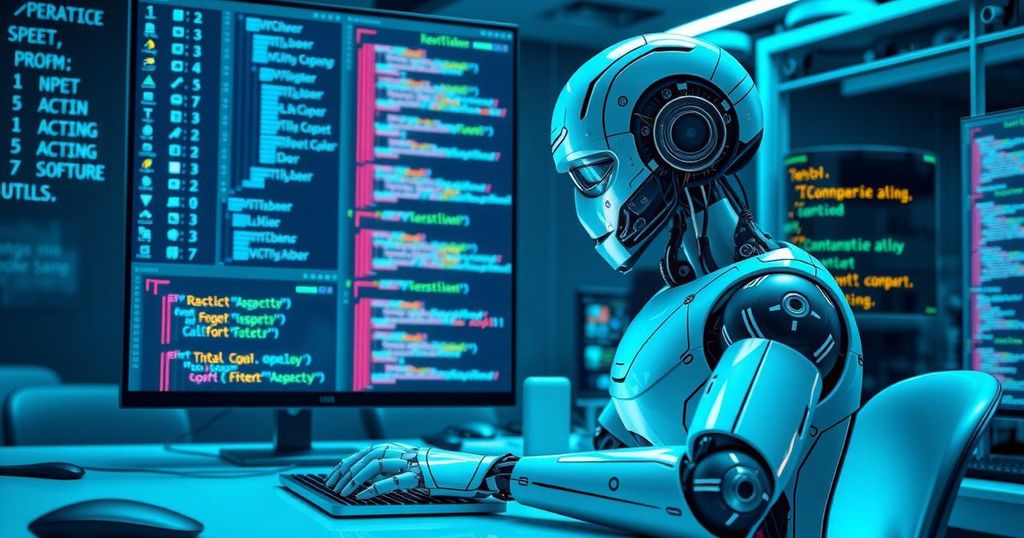OpenAI’s A-SWE: The Future of Software Engineering AI
OpenAI is developing A-SWE, an AI agent capable of fully replacing software engineers rather than just augmenting their skills. CFO Sarah Friar highlighted this advancement at a recent conference, noting the agent’s ability to perform tasks like testing and documentation. The company is also evolving into a full AI infrastructure provider, seeking to solve computing limitations through the Stargate project while remaining cautiously optimistic about future developments and potential IPO plans.
OpenAI is pioneering the development of an AI agent known as “A-SWE” that can independently perform the full range of tasks traditionally handled by software engineers. CFO Sarah Friar shared insights at the Goldman Sachs conference, stating, “This is not just augmenting the current software engineers […] but instead, it’s literally an agentic software engineer that can build an app for you.” This innovative AI can tackle quality assurance, bug testing, and even documentation duties, promising to amplify the efficiency of engineering teams.
A-SWE marks the third phase in OpenAI’s approach to agentic AI; the previous developments include Deep Research for generating comprehensive research reports and Operator for managing web-based tasks such as booking travel. The integration of these systems could pave the way for AI to explore new domains and produce groundbreaking innovations, Friar noted, with academic input suggesting that current models are finding novel concepts yet to be validated.
Additionally, Friar unveiled that OpenAI’s latest model, GPT-4.5, is designed with heightened emotional intelligence, or EQ, focusing on creativity and design, not just technical skills. “We’re actually spending a bunch of time thinking about the more EQ side of models,” she explained, suggesting this model feels more human-like and adept at creative tasks.
Amid excitement regarding AI, a report highlights concerns over job displacement, with many workers feeling apprehensive about the impact of these emerging technologies. However, the optimistic outlook presents AI as a useful collaborator in the workforce, although its challenges remain.
In a strategic pivot, OpenAI is evolving from a model builder to a comprehensive AI infrastructure provider. Friar stated, “Today, OpenAI is so much more… and we feel like we’re creating a lot of IP there.” The startup is heavily invested in the $500 billion Stargate project, aimed at establishing data centers to support AI training and inference, positioning itself similarly to Amazon’s early adoption of AWS.
Despite these advancements, Friar acknowledged that computing power remains a significant hurdle. The Stargate project promises to alleviate this issue by generating up to 10 gigawatts of power, exceeding Ireland’s total electrical consumption, crucial for sustaining OpenAI’s rapid growth, which has seen revenue triple annually.
Finally, while an initial public offering (IPO) isn’t imminent, Friar remains optimistic about the company’s trajectory, hinting at future possibilities, stating, “I can’t even imagine that right now — so much going on.” The spirit of innovation and commitment to progress fuels OpenAI’s journey into the future.
OpenAI is set to revolutionize the software engineering field with its A-SWE AI agent, expected to independently handle tasks traditionally assigned to human engineers. As the company evolves into a comprehensive AI infrastructure provider through significant projects like Stargate, it’s well-positioned for accelerated growth despite existing challenges related to computing power. The anticipation surrounding this technology is tempered with caution regarding job impacts, leaving both excitement and apprehension in its wake as OpenAI continues to chart its future.
Original Source: www.pymnts.com




Post Comment